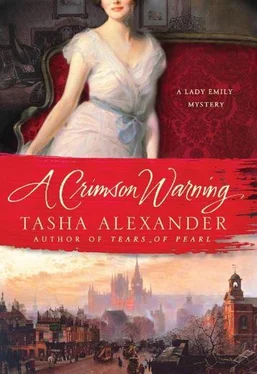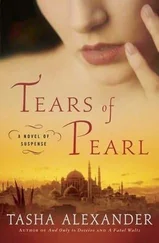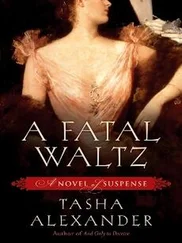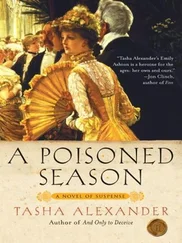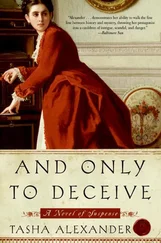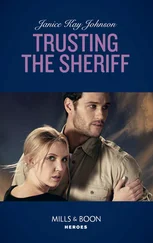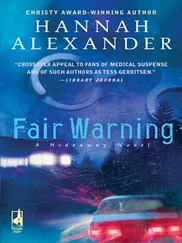Of this vile politician
“Henry IV, Part I,” Ivy said. “It’s one of Robert’s favorites.”
“That’s it,” I said. “I’m going to fetch Colin. And we must send for your husband. Ivy will look after you.
I took the carriage to the Harrises’ house, but before I’d reached my destination, I saw Colin walking away from it. I called for the driver to stop and waved for my husband’s attention.
“What are you doing here?” he asked.
I told him about Lady Glover. “She wasn’t kidnapped any more than I was,” I said. “It looked liked she’d rolled around in the mud to lend herself an air of authenticity. I’ll tell you the rest later. But when I read the last letter she said she’d received from our painter, I wanted to find you at once.”
“What is it?”
“We need to revisit those notebooks I found in Mr. Dillman’s house. As quickly as possible. The letter made reference to a vile politician, and the notebooks had all those records of bills before Parliament. I want to study them again.”
“They’re at Scotland Yard,” he said.
“You can tell me about Mrs. Harris on the way,” I said.
“That’s a mess of phenomenal proportion,” he said. “Mr. Harris will be fine, although he’ll have a headache for the foreseeable future. His wife has ledgers full of the most horrific gossip. And she’d made large red X s by the people whose houses were painted. It’s impossible to tell whether that’s to indicate that she’d already finished with them or whether she was just keeping track of what someone else was doing.”
“Was every single victim of the paint on her list?” I asked.
“All but Mr. Dillman,” he said. “But he was the first, and it’s entirely possible she didn’t start her book until after she was finished with him. And now she’s proven herself capable of violence. There’s one other thing you might find interesting. She kept a record of her correspondence in one of her journals, and was writing to Foster on a regular basis for the past year. The frequency of her letters to him increased, however, about two weeks before Dillman’s death.”
“Do you think there’s a connection between them?” I asked.
“It’s possible,” he said. “We’ll have to question Foster before we can reach any firm conclusions. Regardless, she looks to be the guilty party.”
“I don’t think so,” I said. “Please, take me to Scotland Yard.”
“We’ll go, first thing in the morning,” he said. “Right now, we need to deal with Lady Glover, who may be facing some very serious charges.”
“Can we at least pick up the notebooks and bring them home?”
“You’re relentless, my dear.”
“Implacable.”
“I might as well give in?” he asked, leaning in for a kiss.
“It would be futile to do otherwise.” He kissed me again, this time more thoroughly.
And then he did as I asked, insisting that I remain in the carriage while he ran inside to fetch the notebooks. I did not object, having found the ride to Scotland Yard some of the most pleasant time I’d spent all season.
Back at Park Lane, it was difficult to reconcile the wrathful, seething man giving Lady Glover a most severe dressing down with the passionate and attentive gentleman who had escorted me home from Scotland Yard. A shiver of excitement charged through me as I watched him. It was bad of me, no doubt, to admire this side of him, but how could I not? He was a master of his work, and within a quarter of an hour he’d got Lady Glover to confess every detail of what she’d done, down to the names of the men she’d hired to “guard” her.
“They were actors?” Colin asked.
“I needed them to be convincing,” she said. “Darling, I’m terribly sorry, you must forgive me.”
“You will not tell me what I must do,” he said. “Sit up. I’ll not speak to you while you’re making such a terrible attempt to mimic Cabanel’s portrait of Ophelia.”
I expected a witty reply from her, but she said nothing. She sat up, pulling my dressing gown close around her shoulders.
“Your husband will be here momentarily,” Colin said. “I suggest you go upstairs and put your own clothes back on. It’s reprehensible that you’re in public rooms in such a state.”
“My clothes are all wet,” she said.
“Because you chose to make them that way.”
“Colin, I could lend her a dress so that she doesn’t—”
He interrupted me. “She doesn’t need comfort right now, Emily. Lord Glover will take her home in short order and she can wear what she likes once she’s there.” He rang for a maid and directed her to take Lady Glover back upstairs. “I’ve no tolerance for what you’ve done. Not only have we wasted time and resources searching for you, you put my wife and the Duke of Bainbridge in danger when you set your thugs on them.”
“I told them not to hit either of them too hard,” she said. “You must see I couldn’t let them rescue me all the way. I just wanted them to be able to make a good-sounding report.”
“What you’ve done is outrageous and despicable,” he said. “Your antics have made it more difficult to find the savage who killed Cordelia Dalton.”
She nodded, chastened, and followed the maid from the room.
“I don’t ever want you mad at me,” Ivy said to him. “You’re very fierce.”
“She’s behaved most appallingly,” Colin said. “Two people are dead, and she’s staged this farce to get attention? It’s outrageous. She’s fortunate I wasn’t harder on her.”
“Fortunate indeed,” I said. “Now tell Ivy what you learned at the Harrises’.”
“Mr. Harris is going to be all right. She was rough with him, and he’s banged up, but the doctor felt there’s no need for serious concern.”
“I imagine he’ll approach marital fidelity with a different view moving forward,” I said.
“Will Winifred be arrested?” Ivy asked.
“I don’t know yet,” Colin said. “Scotland Yard are searching the house right now. We already know she’s guilty of extortion, and now this. I’m afraid it doesn’t look good for her.”
“But you can’t think she killed Mr. Dillman,” Ivy said.
“Why not?” he asked.
“I just can’t believe it, despite what we’ve seen.” Ivy’s shoulders were pulled back, stiff and straight.
“She may have had an accomplice,” I said. “Which is why we need to look at those notebooks right away, Colin.”
I took them to the table, spread them out, and opened the one in which I was the most interested—the one that listed parliamentary bills amongst other things. “We know more about Mr. Dillman’s way of thinking since having come to a full understanding of the game he played with Cordelia. Let’s see if he was doing something similar to that with the information in these books.”
We looked at the numbers and symbols listed next to each bill. I copied out twice each set—numbers and symbols—and gave one to Ivy. Colin and I would use the other.
“Take a notebook and go through, page by page. We need to find all of these.”
The meaning of the numbers proved elusive, so elusive that Colin turned to a thick volume of parliamentary records. “They are just votes, Emily. Votes on bills that passed in the last five years.”
“So why did he pick these in particular?” I asked. “Can you find out more about the bills?”
“I will,” he said, turning back to the book.
Ivy let out a little squeal. “I’ve found one of the symbols!” She turned the notebook she’d been studying so that I could see it right side up. A quite competent watercolor of a laurel was on the page, its small, white flowers executed with great precision. Incorporated into the bottom of the image was the symbol, an upside-down triangle, so small one would only notice it buried amongst the green leaves if one was specifically looking for it. Beneath the picture were the words Daphne Alpina and a date, 18 June 1891. The “a” was underlined.
Читать дальше
